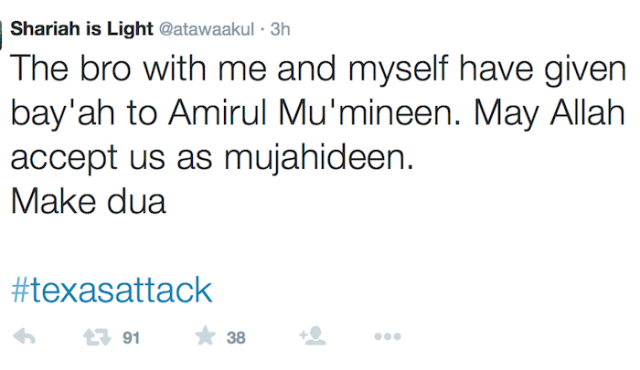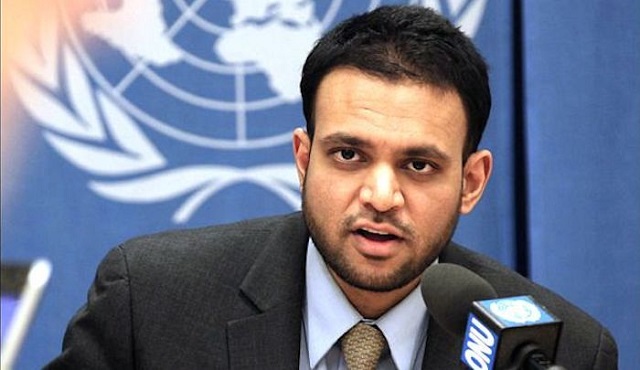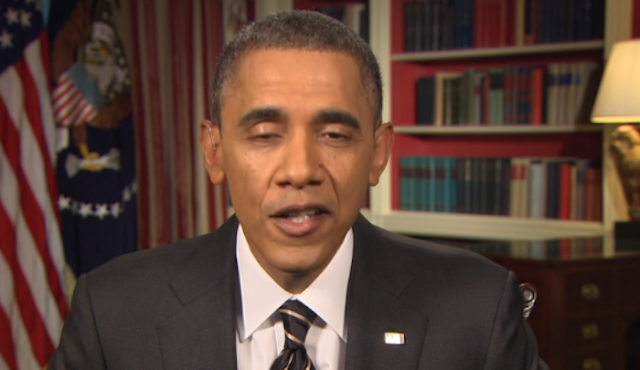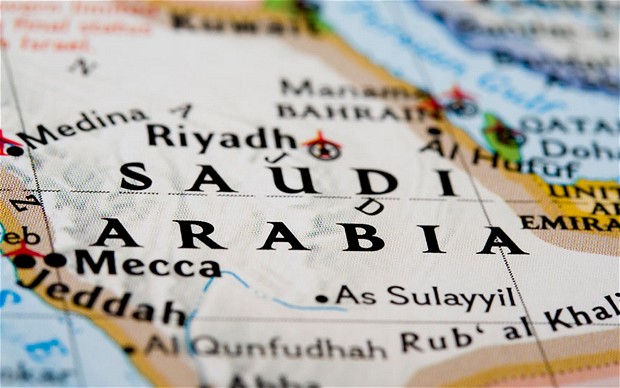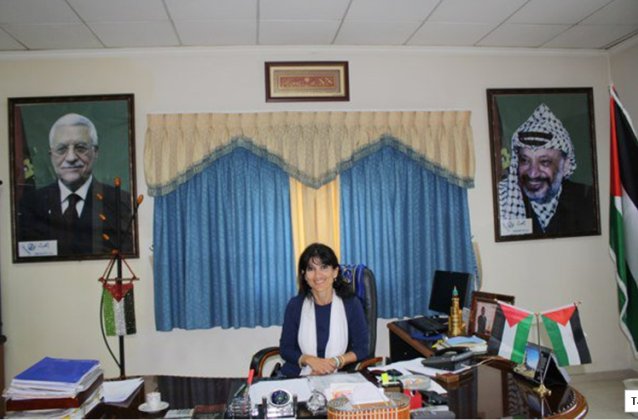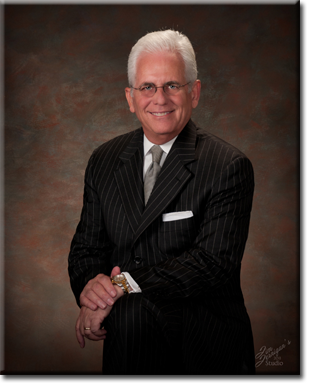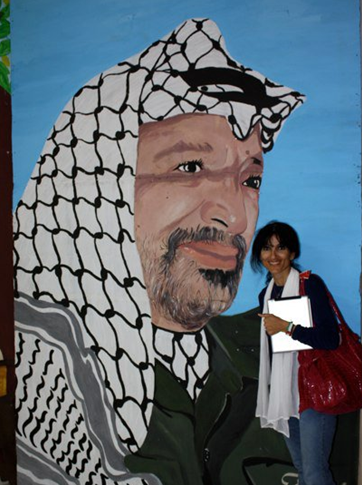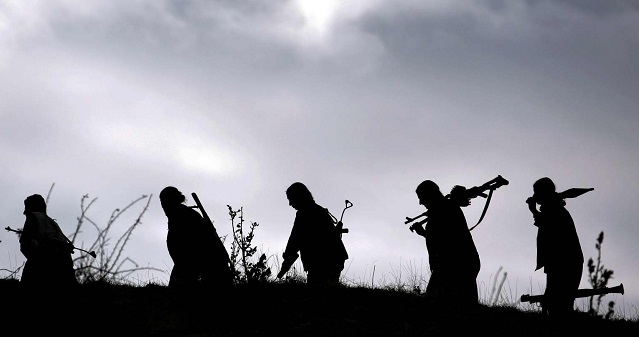There will be a shift in Saudi Arabia’s foreign policy in 2015, most likely their strategy will be similar to that as outlined in the below listed article. Once Saudi Arabia developed a close working partnership with the United States; both countries jointly shaped the Middle East into a relatively stable arena. Now the Middle East is the most volatile region in the world. The once 64 year long term partnership has been fractured by Obama’s intent to establish diplomatic relations with Iran, regardless of whether Iran will destabilizing the Middle East region by developing nuclear weapons.
The destabilizing void that has been created in the Middle East by President Obama’s lead from behind Middle East Foreign policy, when coupled with Obama’s unilaterally reduction in strength of the U.S.Armed Forces to a levels below those of WWII. Al Qaeda, ISIL, the Taliban, the Muslim Brotherhood, and Iran have become emboldened by Obama’s Middle East Policy, and have rapidly recruited and grown their worldwide terrorist networks, gaining successes in Libya, Iraq, Syria, Afghanistan, Somalia, Lebanon, Yemen, and in Mexico.
The wide open southern border of the United States is being penetrated by terrorist who flood across the southern border along with illegal aliens; those terrorists are establishing their networks in the United States. Over the last 6 years, concerned Americans have demanded that the Federal Government secure the southern border to no avail; the current open border policy will eventually result in terrorist strikes in the Republic
The Western nations have been at war with Islamic terrorism since 9/11, but the Obama administration by its actions and policies has refused to take the proper preventive actions to oppose the terrorist threats facing the nation. In 2014, Obama released 28 of the deadliest terrorist leaders from Guantanamo Bay, they will continue to prosecute terrorist attacks upon the homeland and U.S. allies.
Saudi Arabia Faces Challenges in the New Year
Geopolitical Weekly
January 6, 2015 | 09:00 GMT Print Text Size
By Michael Nayebi-Oskoui
The Middle East is one of the most volatile regions in the world — it is no stranger to upheaval. The 2009 uprisings in Iran and the brinksmanship of Mahmoud Ahmadinejad’s government were followed by the chaos of the Arab Spring, the spillover of the Syrian conflict into Iraq and a potential realignment of the U.S.-Iranian relationship. Unlike recent years, however, 2015 is likely to see regional Sunni Arab interests realign toward a broader acceptance of moderate political Islam. The region is emerging from the uncertainty of the past half-decade, and the foundations of its future are taking shape. This process will not be neat or orderly, but changes are clearly taking place surrounding the Syrian and Libyan conflicts, as well as the region’s anticipation of a strengthened Iran.
The Middle East enters 2015 facing several crises. Libyan instability remains a threat to North African security, and the Levant and Persian Gulf must figure out how to adjust course in the wake of the U.S.-Iranian negotiations, the Sunni-Shiite proxy war in Syria and Iraq, and the power vacuum created by a Turkish state bogged down by internal concerns that prevent it from assuming a larger role throughout the region. Further undermining the region is the sharp decline in global oil prices. While Saudi Arabia, Kuwait and the United Arab Emirates will be able to use considerable cash reserves to ride out the slump, the rest of the Middle East’s oil-exporting economies face dire consequences.
For decades, long-ruling autocratic leaders in countries such as Algeria and Yemen helped keep militancy in check, loosely following the model of military-backed Arab nationalism championed by Gamal Abdel Nasser in Egypt. Arab monarchs were able to limit domestic dissent or calls for democracy through a combination of social spending and repression. The United States not only partnered with many of these nations to fight terrorism — especially after September 2001 — but also saw the Gulf states as a reliable bulwark against Iranian expansion and a dangerous Iraq led by Saddam Hussein. Levantine instability was largely contained to Lebanon and the Palestinian territories, while Israel’s other neighbors largely abided by a tacit agreement to limit threats emanating from their territories.
Today, Saddam’s iron grip on Iraq has been broken, replaced by a fractious democracy that is as threatened by the Islamic State as it is by its own political processes. Gone are the long-time leaders of states like Tunisia, Libya and Egypt. Meanwhile, Algeria, Saudi Arabia and Oman are facing uncertain transitions that could well take place by year’s end. The United States’ serious dialogue with Iran over the latter’s nuclear program, once a nearly unthinkable scenario for many in the Gulf, has precipitated some of the biggest shifts in regional dynamics, especially as Saudi Arabia and its allies work to lessen their reliance on Washington’s protection.
The Push for Sunni Hegemony
Riyadh begins this year under considerably more duress than it faced 12 months ago. Not only is King Abdullah gravely ill (a bout of pneumonia forced the 90-year-old ruler to ring in the new year in the hospital and on a ventilator), but the world’s largest oil-producing country has also entered into a price war with American shale producers. Because Saudi Arabia and its principal regional allies, Kuwait and the United Arab Emirates, boast more than a trillion dollars in cash reserves between them, they will be able to keep production levels constant for the foreseeable future.
However, other OPEC producers have not been able to weather the storm as easily. The resulting 40 percent plunge in oil prices is placing greater financial pressure on Iran and the Shiite-dominated government in Iraq, Saudi Arabia’s largest sectarian and energy rivals. Riyadh’s careful planning and building of reserves means the Saudi kingdom’s economic security is unlikely to come under threat in the next one to three years. The country will instead continue to focus on not only countering Iran but also rebuilding relationships with regional Sunni actors weakened in previous years.
Riyadh’s regional strategy has traditionally been to support primarily Sunni Arab groups with a conservative, Salafist religious ideology. Salafist groups traditionally kept out of politics, and their conservative Sunni ideology was useful in Saudi Arabia’s competition against Iran and its own Shiite proxies. Promoting Salafism also served as a tool to limit the reach of more ideologically moderate Sunni political Islamists like the Muslim Brotherhood and its affiliates, groups Riyadh sees as a threat because of their success in organizing grassroots support and fighting for democratic reforms.
With rise of external regional pressures, however, Gulf monarchies such as Saudi Arabia are re-evaluating their relationships with the Muslim Brotherhood. Internal threats posed by Salafist jihadists and a desire to limit future gains by regional opponents are pushing countries such as Saudi Arabia and the United Arab Emirates to try to forge a relationship with the Muslim Brotherhood to limit the risks posed by rival groups in the region.
Restoring relations with the Muslim Brotherhood will also have effects on diplomatic relations. Qatar has long been a supporter of the Muslim Brotherhood, a fact that has strained its relations with other countries — Saudi Arabia, Bahrain and the United Arab Emirates even went so far as to close their embassies in Qatar. However, the continuation of the United States’ rapprochement with Iran and Riyadh’s own discomfort with the rise of Salafist jihadist groups has made it reconsider its stance on political Islamism. Riyadh, Bahrain and Abu Dhabi’s agreement to resume diplomatic ties with Doha, and the latter’s consideration of changing its relationships with Egypt and Libya, points to a shift in how the bloc’s engagement with the Muslim Brotherhood has the potential to streamline the Gulf Cooperation Council’s (GCC) efforts in the region.
The Gulf monarchies’ attempt at reconciling with political Islamists can potentially benefit the GCC. For its part, Qatar has engaged with the staunchly anti-Islamist Libyan government in Tobruk, and it appears tensions with President Abdel Fattah al-Sisi’s government in Egypt have calmed. Both scenarios point to the likelihood of the GCC moving closer to adopting a more unified regional stance beginning in 2015, one more in line with Riyadh’s wishes to preserve the framework of the council.
This improvement in relations comes at a critical moment. With the United States and Iran undergoing a rapprochement of their own, the Gulf monarchies will try to secure their own interests by becoming directly involved in Libya, Syria and potentially Yemen. This military action will also aim to project strength to Iran while also filling the strategic void left by the absence of Turkish leadership in the region, especially in the Levant.
However, Qatar has been opposed to this course of action in the past. Despite its small size, the country has used its wealth and domestic stability to back a wide array of Islamist groups, including the Muslim Brotherhood in Egypt, Ennahda in Tunisia and rebel groups in Syria. Tensions between Qatar and regional allies came to a head in 2014 in the aftermath of Saudi and Emirati support for the July 2013 uprising that ousted the Doha-backed Muslim Brotherhood government in Egypt. The tension threatened the stability of the GCC and caused rebel infighting in Syria. This disconnect in Gulf policy has had wide regional repercussions, including the success of Islamic State militants against Gulf-backed rebel groups in Syria and the Islamic States’ expansion into Iraq.
Without foreign military intervention on behalf of the rebels, no faction participating in the Syrian civil war will be able to declare a decisive military victory. As the prospects of a clear-cut outcome become less realistic, Bashar al Assad’s Russian and Iranian backers are increasing diplomatic efforts to negotiate a settlement in Syria, especially as both are eager to refocus on domestic woes exacerbated by the current drop in global energy prices. Kuwait’s recent decision to allow the Syrian regime to reopen its embassy to assist Syrian expats living within its borders points to a likelihood that the Gulf states are coming to terms with the reality that al Assad is unlikely to be ousted by force, and Sunni Arab stakeholders in the Syrian conflict are gradually giving in to the prospect of a negotiated settlement. A resolution to the Syrian crisis will not come in 2015, but regional actors will continue looking for a solution to the crisis outside of the battlefield.
Any negotiated settlement will see the Sunni principals in the region — led by the GCC and Turkey — work to implement a competent Sunni political organization that limits the authority of a remnant Alawite government in Damascus and future inroads by traditional backers in Tehran. Muslim Brotherhood-style political Islam represents one of the potential Sunni solutions within this framework, and with Saudi opposition to the group potentially fading, it remains a possible alternative to the variety of Salafist options that could exist — to include jihadists. Such a solution ultimately relies on a broader democratic framework to be implemented, a scenario that will likely remain elusive in Syria for years to come.
North Africa’s Long Road to Stability
North African affairs have traditionally followed a trajectory distinct from that of the Levant and Persian Gulf, a reality shaped as much by geography as by political differences between the Nasser-inspired secular governments and the monarchies of the Gulf. Egypt, Saudi Arabia’s traditional rival for leadership of the Sunni Arab world, has become cripplingly dependent on the financial backing of its former Gulf rivals. The GCC was able to use its relative stability and oil wealth to take advantage of opportunities to secure its members’ interests in North Africa following the Arab Spring. As a result, Cairo has become a launching pad for Gulf intentions, particularly UAE airstrikes against Islamist militants in Libya and joint Egyptian-Gulf backing of renegade Gen. Khalifa Hifter’s Operation Dignity campaign.
Like Syria, Libya represents a battleground for competing regional Sunni ambitions. Qatar, and to a lesser extent Turkey, backed Libya’s powerful Islamist political and militia groups led by the re-instated General National Congress in Tripoli after the international community recognized the arguably anti-Islamist House of Representatives in Tobruk. Islamist-aligned political and militia forces control Libya’s three largest cities, and Egyptian- and Gulf-backed proxies are making little headway against opponents in battles to gain control of Tripoli and Benghazi, prompting more direct action by Cairo and Abu Dhabi.
Saudi Arabia, Egypt and the United Arab Emirates are primarily concerned with the possibility of Libya, an oil-rich state bordering Egypt, becoming a wealthy backer of political Islam. Coastal-based infighting has left much of Libya’s vast desert territories available for regional jihadists as well as a host of smuggling and trafficking activities, posing a significant security risk not just for regional states but Western interests as well. Egyptian and Gulf attempts to shape outcomes on the ground in Libya have proved largely ineffective, and Western plans for reconciliation talks favor regional powers such as Algeria — a traditional rival to Egyptian and Gulf interests in North Africa — that are more comfortable working with political actors across a wide spectrum of political ideologies to include Muslim Brotherhood-style Islamism.
Libya will likely find itself as the proving ground for the quid pro quo happening between the participants of the intra-Sunni rift over political Islam. In exchange for Saudi Arabia and its partners reducing their pressure on Muslim Brotherhood-style groups in Egypt and Syria, Qatar and Turkey are likely to work more visibly with Tobruk in 2015 in addition to pushing Islamist proxies into a Western-backed national dialogue. Libya’s overall security situation will not be settled through mediation, but Libyan Islamists are more likely to re-enter a coalition with the political rivals now that both sides’ Gulf backers are working toward settling differences themselves.
Regional Impact
Dysfunction and infighting have marred attempts by the region’s Sunni actors to formulate a cohesive strategy in Syria. This has enabled Iran to remain entrenched in the Levant — albeit while facing pressure — and to continue expending resources competing in arenas such as Libya and Egypt. The next year will likely see an evolving framework where Saudi Arabia and Qatar, and to a lesser extent Turkey, will reach a delicate understanding on the role of political Islam in the region. 2014 saw a serious reversal in the fortunes of Muslim Brotherhood-style groups, which inadvertently favored even more far-right and extremist groups such as the Islamic State as the Gulf’s various Sunni proxies were focused on competing with one another.
Iran’s slow but steady push toward a successful negotiation with the United States, as well as the threats posed by militant Islam throughout the Levant, Iraq and North Africa, is necessitating a realignment of relationships within the Middle East’s diverse Sunni interests. Less divisive Sunni leadership will be instrumental in coordinating efforts to resolve the conflicts in both Libya and Syria, although resolution in both conflicts will remain out of reach in 2015 and some time beyond.
A more robust Sunni Arab position, especially in Syria and the Levant, will likely put more pressure on Iran to reach a negotiated settlement with the United States by the end of the year. While a settlement may seem harmful to Gulf interests, the GCC is shifting toward a pragmatic acceptance of an agreement, similar to Riyadh’s begrudging accommodation of a future role for the Muslim Brotherhood in the Middle East. The GCC’s new goal is to limit Tehran’s opportunities for success rather than outright denying it. Part of this will be achieved through an ongoing, aggressive energy strategy. The rest will come from internal negotiations between Saudi Arabia, Egypt, Qatar and Turkey.
The next year will see the Sunni presence in Syria attempt to coalesce behind rebels acceptable to Western governments that are eager to see negotiations begin and greater local pushback against the Islamic State. More cohesive Gulf leadership will also present a more effective bulwark against Iranian and Alawite interests in the Levant. Most important, however, is the opportunity for regional Sunnis, led by Saudi Arabia, to present a more mature and capable response to mounting pressures. Whether through more assertive military moves in the region or by working with states such as Qatar to steer the Muslim Brotherhood rather than embolden the Islamist opposition, 2015 will likely see a shift in Sunni Arab strategies that have long shaped the region.
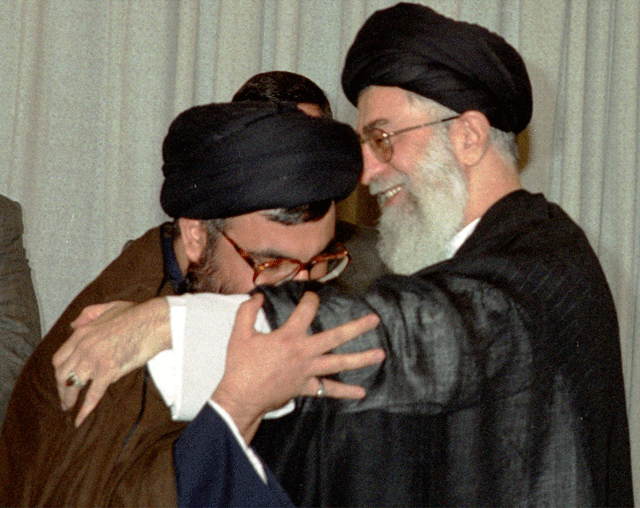


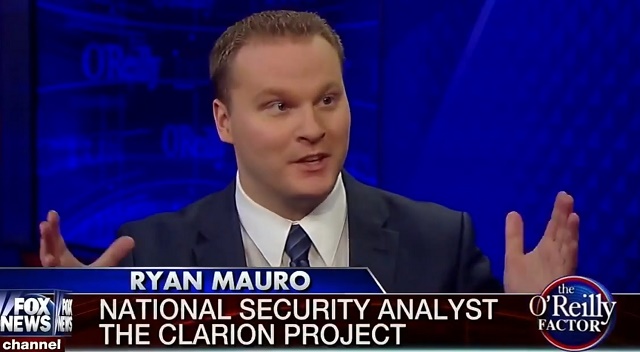
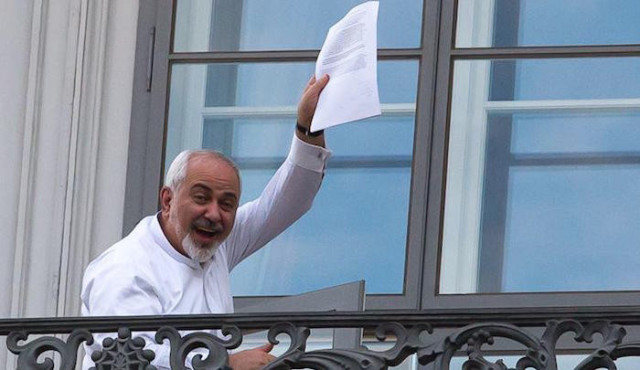

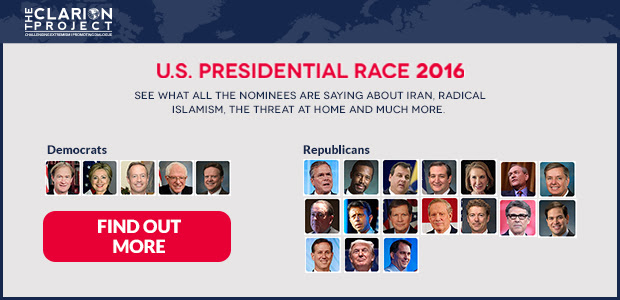














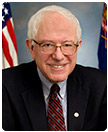



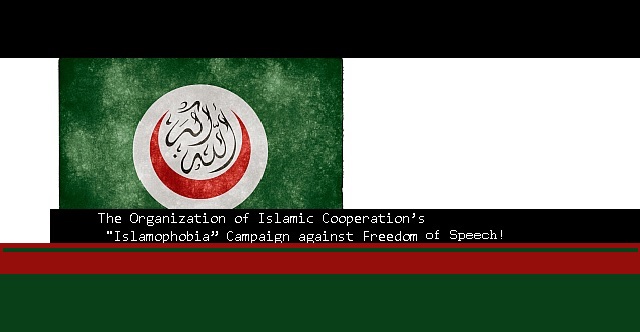
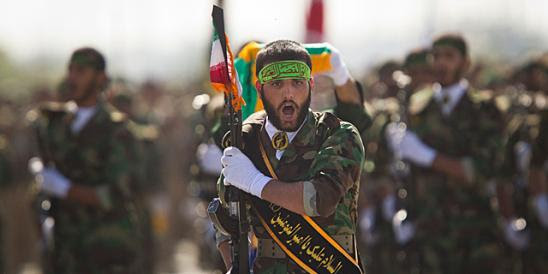

 FROM THE DIRECTOR’S DESK
FROM THE DIRECTOR’S DESK
